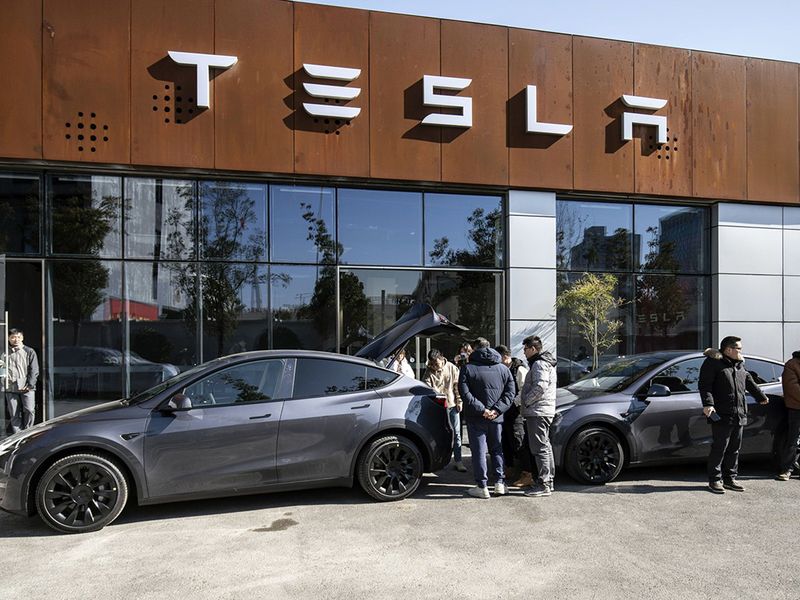
Tesla Inc. is facing further fallout in China, with some local governments and official institutions reviewing vehicle ownership among their staff, citing concerns the cars pose security risks, according to people familiar with the matter.
Authorities in Zhejiang and Guangxi provinces have either asked government bodies to check and report on any employees who have bought the cars, or forbidden staff from key agencies to drive Teslas into certain official areas, the people said, asking not to be identified because the details are private.
The China Meteorological Administration, the national weather service headquartered in Beijing, has told staff not to buy the company’s EVs and if they already have, has requested they transfer ownership of the car to another person, one person said.
The Propaganda Department of the Chinese Communist Party, meanwhile, is checking whether any employees or their family own Teslas. The moves are motivated by potential security concerns, the people said.
Tesla declined to comment.
Provincial government representatives from Zhejiang and Guangxi as well as the Propaganda Department didn’t immediately respond to a request for comment. Two calls to the China Meteorological Administration went unanswered.
Tesla has come under heightened scrutiny in the world’s biggest automobile market after its cars were banned from some military complexes and housing compounds in March because of concerns about data being collected by the cameras built into the vehicles. The worry is that sensitive information is being collected via the cars’ sensors in a way the Chinese government can’t see or control.
Tesla CEO Elon Musk hit back, saying later that month that if Tesla ever used its cars to spy in China, or anywhere, the company would get “shut down everywhere.” A few days later, Tesla’s Beijing unit said in a statement that cameras built into its cars aren’t activated outside of North America, and even in the U.S., vehicle owners are able to choose freely whether or not they want to turn on their cameras.
But it’s not just cameras causing concern.
There’s also been heated debate in local and social media in China about how Tesla stores customers’ data and whether its cars are safe. That particular issue came to the fore last month, when a protester jumped on top of one of Tesla’s display cars at the Shanghai Auto Show, saying the brakes in her vehicle failed, almost killing her father, who was driving at the time.
Initially, Tesla declined to release the data from the car in the moments before the crash. However as the furor intensified, it did and it was revealed the Model 3 was traveling at 118.5 kilometers an hour (74 miles per hour) just before impact and slowed to around 48.5 kilometers per hour after the brakes were applied.
Since then, any car crash in China involving a Tesla has received outsized attention. Last week, the company pledged to work with authorities to investigate a crash involving one of its EVs in which a policeman died, and another accident is also still under investigation after a Tesla rear-ended a truck in Shaoguan in Guangdong province on May 7, killing the driver of the EV.
Earlier this week, Tesla said it has set up a data center in China and will look to add more over time. It also said it’s working on a vehicle information inquiry platform that would be available to car owners and allow them to check data online. The company posted job ads on its official WeChat channel, seeking to hire data engineers and security experts in Shanghai and Beijing.

